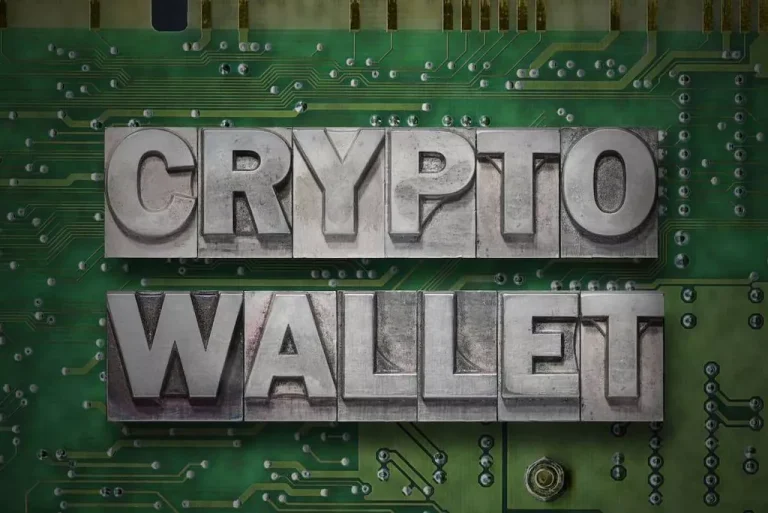The major instruments to hold and trade virtual coins are crypto wallets. You may find 2 kinds of them: custodial and noncustodial. It is pivotal to grasp the distinction between them since the assets’ safety is at stake.
The key difference between these two types lies in having a third party, a custodian, who takes care of keeping traders’ personal information safe. Those who have ever worked with Bitcoin or other tokens can’t underestimate the significance of digital storage. With it, individuals conduct transactions and deal on exchanges. Moreover, the use of blockchain-based applications is likewise possible. Today, let’s touch on custodial vs non custodial wallet distinctions and decide what kind to choose.
Custodial Crypto Wallets: Pros and Cons
Traders need a cryptocurrency wallet to control and transfer digital assets. It’s critical to understand the differences between two of the most sought-after solutions – custodial vs non custodial wallet.
An operator, a custodian, controls a custodial wallet that stores tokens. It has total authority over user addresses and confidential keys. Custodial wallets let you steer clear of paying increased transaction taxes. It is specifically valuable when you work with ETH-based decentralized apps during extreme network traffic.
Moreover, transaction terms are frequently better. Sometimes, they can even prevent further taxes. Clients can safeguard their funds by incorporating cash-out limitations and 2FA. Furthermore, centralized exchanges normally offer compensation and loss insurance. It cuts down the user’s liability in currency holding. A custodial cryptocurrency wallet is a go-to choice among newcomers and inexperienced investors.
Traders tied to centralized exchanges are highly subject to the actions of the exchange owners. If the exchange’s owner decides to close down operations or conduct fraud, you risk losing money. Moreover, receiving funds returned in some circumstances may take a long time. Remember that if the exchange closes, you may be unable to get the money back.


Turnkey Brokerage Solution For Your Business
Get the most profitable fully licensed fx/crypto brokerage software or ready-to-operate business in 48 hours. Best-in-class web & mobile trading platforms, sales-driven CRM, full integration with MT4/5, and 150+ payment providers.
Noncustodial Crypto Wallets: Pros and Cons
There are multiple varieties of noncustodial wallets for cryptocurrencies, each with a different technical competence level required.
Software ones, as well as browser and app-based alternatives, are frequently regarded as the least secure. The program is perpetually connected to the Internet. It makes it powerless in the face of a hacker attack.
Hardware ones are considered to be dependable. Hacking is almost impossible as the gadget stores the key instead of the network.
The user governs private keys and assets using these wallets. They do, however, entail a responsibility and technological know-how. Let’s look into the top positive sides:
- The advantage of noncustodial wallets (DeFi wallets) is that they maintain unique keys, so no one else can access your money. To authorize transactions, the user has to utilize the private keys.
- Data breaches and hacking are also less common.
- In most cases, the value of the tokens in a non-custodial wallet is less than that of centralized exchanges, which discourages hackers.
- You are in charge of the private keys and money. Consequently, you don’t have to wait for external deadlines to cash out.
Lastly, they let you handle your finances offline and whenever convenient.
However, don’t forget about the pain points. Being unable to contact the help desk may be troublesome since users cannot receive assistance with potential concerns. Furthermore, having authority over the finances involves assuming full responsibility, which isn’t the easiest task for newbies. Misplacing keys can result in financial loss, so ensuring their intactness and backing them up is compulsory.

Which to Choose?
A custodial vs non custodial wallet are distinct solutions. The first ones let centralized exchanges retain private keys, while noncustodial wallets are entirely dependent on the user. The supplier or exchange is mostly in charge of the crypto wallet security because the client solely has access to the public address. Utilizing a custodial option is uncomplicated for regular users, freeing them of the hassle of remembering and securing a password. If something goes wrong for the custodian, customers are at risk of extensive data breaches.
Switching between a custodial vs non custodial wallet is crucial to safeguard the holdings. Investors utilize countless tactics, including noncustodial alternatives and custodial exchange accounts. Some people even mix the two. You should also consider if you need a “cold” or “hot” wallet and whether you should spread the holdings over a good deal of storage. Whatever you pick, maintain a high profile on safety.
It is difficult to say which type is best because it depends on the specific scenario. Custodial ones provide access to numerous services in addition to convenience, making them more useful to novice traders. Nevertheless, if you have a substantial balance, pay attention to using noncustodial ones.
Choose a custodial option if:
- All you want to do is buy some virtual coins to test the waters.
- You should be able to retrieve the balance back in case you misplace or forget the password.
- You don’t mind investing your money in a cryptocurrency exchange.
- It is possible to wait for KYC and AML inspections when registering the wallet.
A noncustodial one is a go-to option if users:
- Want to fully control the crypto wallet.
- Want to put more money and effort into crypto and blockchain technology.
- Agree to be accountable for keeping the key secure.
- Want to make a wallet quickly and start utilizing it.
If you doubt the choice, you can try both options and, based on the experience gained, select the one that meets your needs.
XCritical Crypto Wallet
Custodial options are sometimes ideal among newbies who are unsure how to keep the tokens. Noncustodial ones, while more secure and adaptable, need technical knowledge on the client’s part.
Despite the convenience of custodial wallets, investors demand maximum investment security. Exchange investment funds offer the highest protection to virtual funds while opening the opportunity to trade without handling keys or working directly with blockchains. However, these positive sides frequently come at a cost, and the funds only function with a restricted number of currencies.
XCritical offers crypto wallet development for brokers and businesses seeking well-trusted storage options. This software lets users receive and keep crypto assets all in one app. Moreover, it’s linked to an exchange. Therefore, traders may convert coins without a hitch. Another compelling feature is that all major currencies are supported. What can be better for the trader? Selecting XCritical software opens a world of opportunities to suit your business needs.






